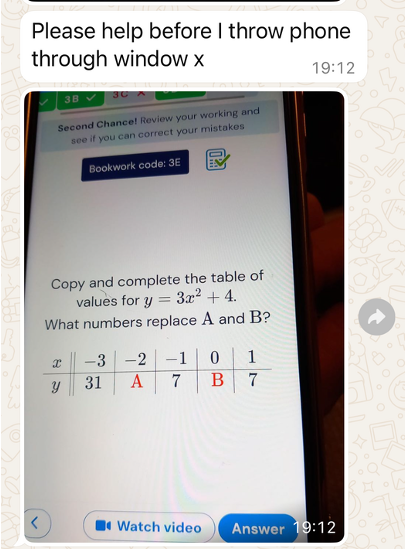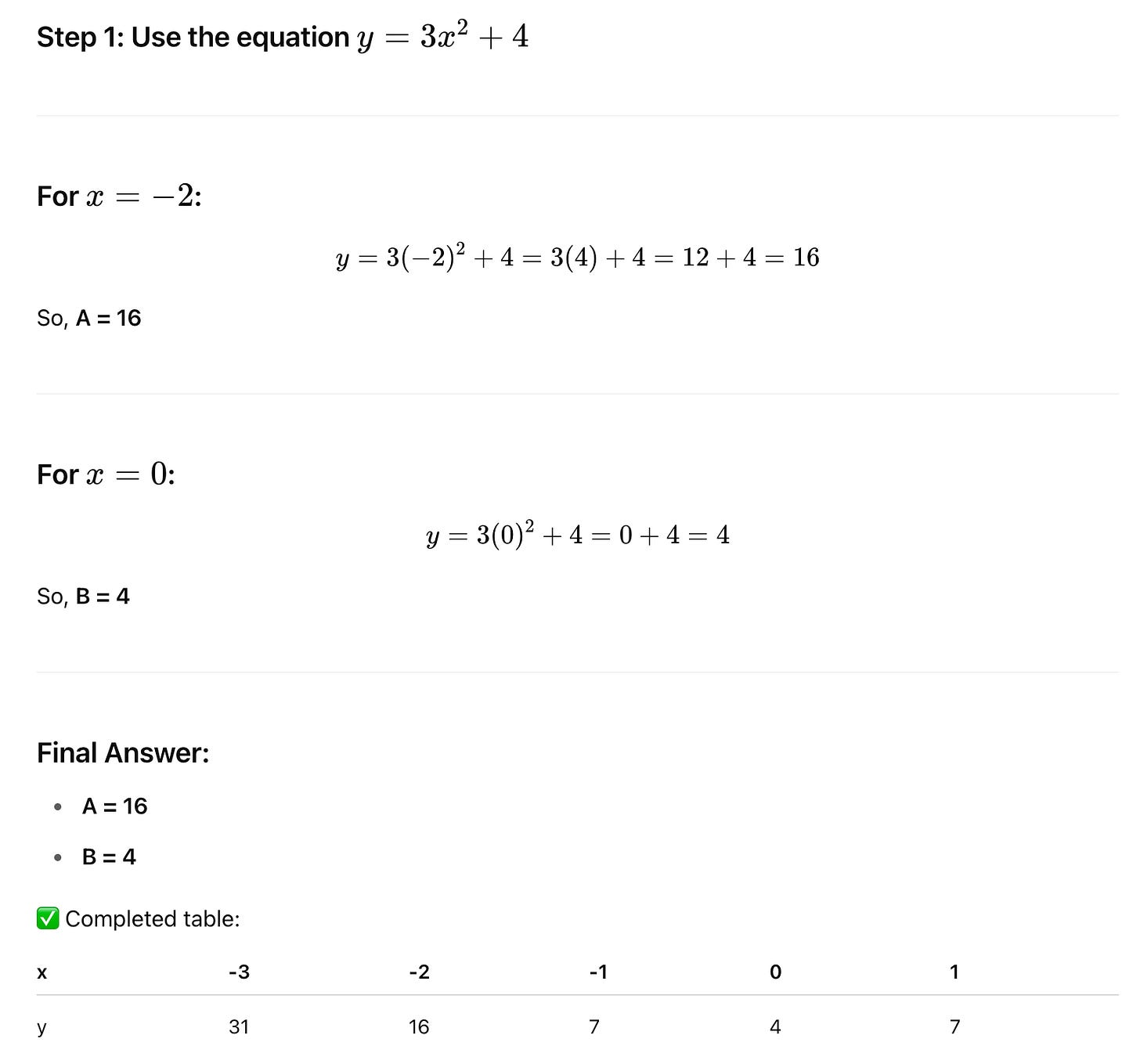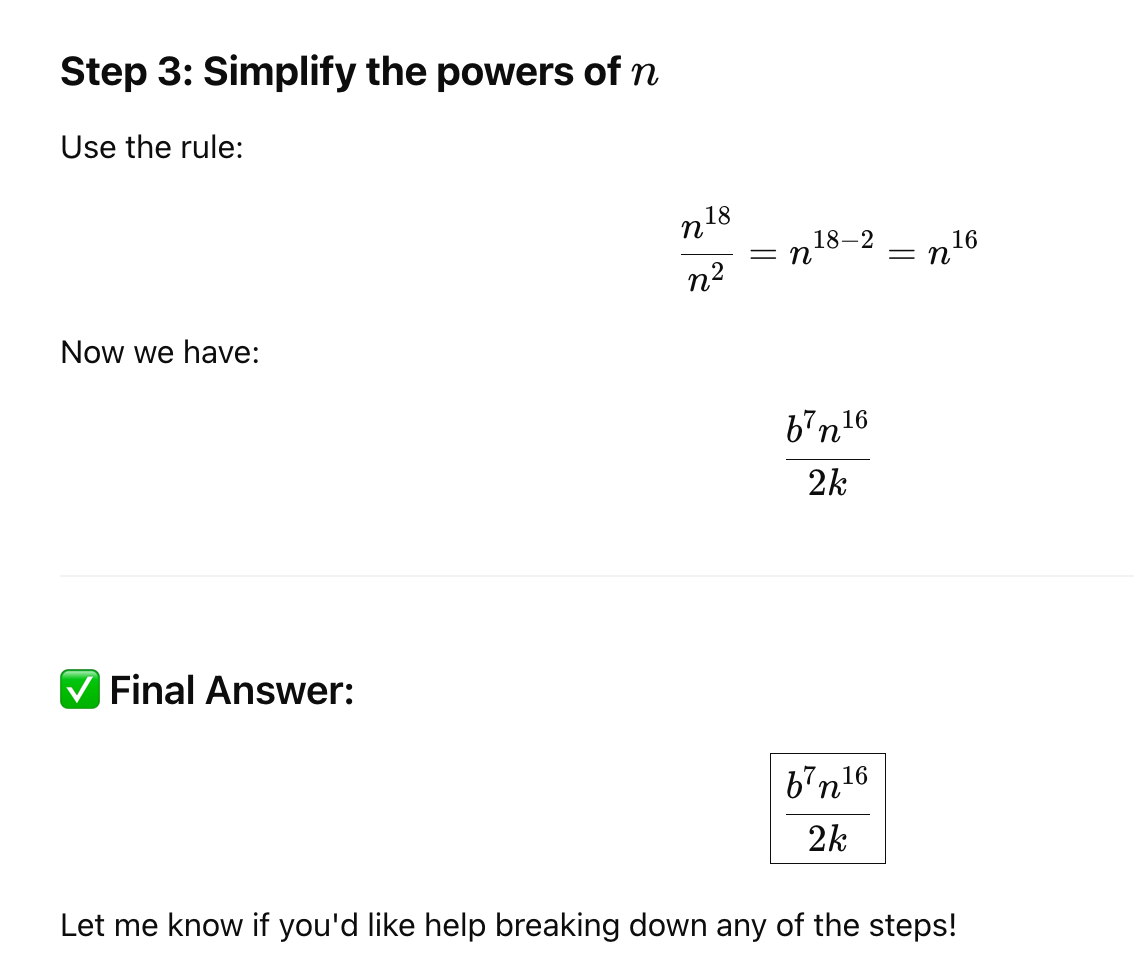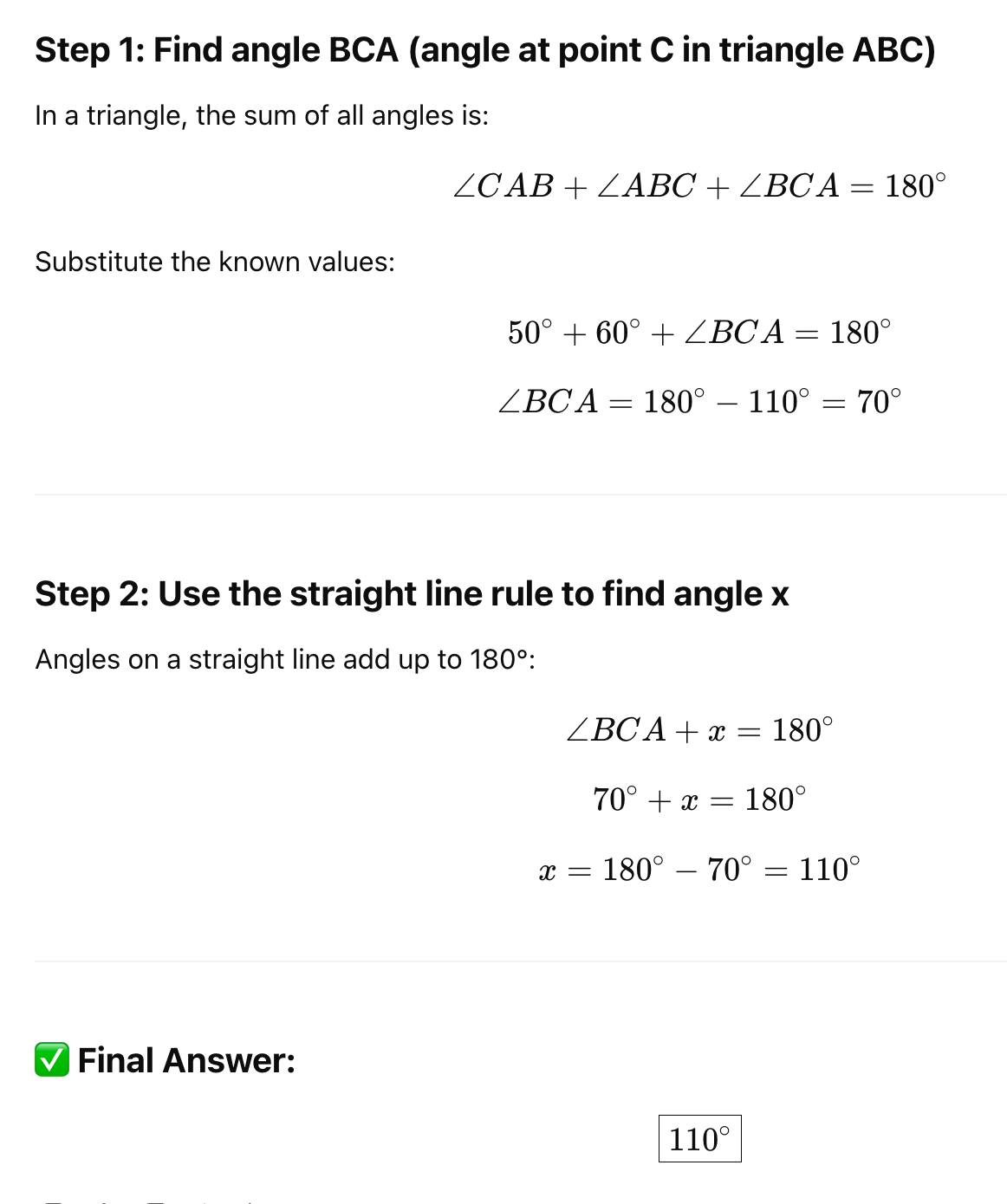Is maths homework dead?
In a world of AI, we must rethink the purpose of maths homework
Give your students a chance to stay sharp this summer with our maths Summer Club from July 21st to August 29th!
By completing the Question of the Day (QOTD) each day in their free Eedi account, students can earn weekly prizes and build confidence for the new school year. Plus, 3 lucky winners will be chosen every week!
It’s a fun, easy way to keep learning going while rewarding effort!
For more details and to get your students set up, click here.
Each week, without fail, I would receive a message along these lines from my friend’s daughter:
Or, from her Mum:
I would oblige, constantly annoying the daughter by asking her questions instead of giving her the final answer that she clearly wanted.
She was in Year 7 then, and her school set maths homework using the popular online platform, Sparx.
She is now in Year 8 and still gets weekly homework on Sparx. But she no longer messages me. Why not? Because she gets ChatGPT to do her homework for her.
How good is ChatGPT at maths homework?
A fundamental problem with homework has always been that the teacher does not know the conditions under which it is completed, thus reducing its reliability as an assessment of understanding. Has the student done it all themselves, had help from a parent, or copied off the smart kid in the playground before school starts?
Many online homework platforms address the issue of copying by setting students personalised homeworks, so no two homeworks are ever the same. Many teachers also insist that students fill in homework exercises books, showing the working out that led to the final answer they inputted online.
However, such measures are now redundant. Whether the homework is set online or paper-based, and regardless of the evidence of understanding that the teacher insists on seeing, today’s students all know where to go for all the help they need.
Here is what happened when I uploaded photos of the two Sparx questions my friend and her daughter had sent me to ChatGPT, using the free version that anyone with a smartphone can access:
She could have copied all that working out in her Sparx workbook, entered the correct answer online, and the teacher would have been none the wiser.
Procedural questions on Number and Algebra topics have been solvable by technology for a while now. In the past, students had to get good at typing expressions like: (x^3)/(2x+4). Now they just take a photo.
But what about questions with images? We know images are an issue for these AI chatbots. So, perhaps we are okay with setting paper-based Geometry questions in homework? To test this, I took a photo of the following question from a paper-based homework and sent it to ChatGPT:
Using the same prompt, here is the reply:
Game over.
But does this really matter?
Here is an optimistic view: Because every student now has access to their own private AI tutor, they will get the exact help they need whenever they need it, and hence, their understanding of maths will grow.
Here is a more realistic view: Students who can’t be bothered doing their homework but don’t want to get in trouble can take pictures of the questions, send them to ChatGPT, copy the working out, and score full marks.
This has implications for learning. If the AI is doing all the hard thinking—what Peps Mccrea calls cognitive outsourcing—then students are unlikely to learn. Even those students who use AI as support, calling upon ChatGPT to help when they are stuck, may convince themselves that they understand when presented with the solution steps.
This also has implications for diagnosis. Because of AI, the reliability of homework for assessing student understanding has fallen off a cliff. A student who scores full marks in every homework may not have a clue what they are doing, and yet does not get the help they need from the teacher, who continues to rely on those scores as a proxy for that student’s understanding.
Assessment expert Daisy Christodoulou wrote a great piece arguing that the time has come to eliminate non-examined written assessments because students can easily use ChatGPT to generate responses indistinguishable from those generated by a human. So, we can go further: the reliability of assessing understanding outside of the classroom, whether homework, assignment, or past exam paper, is now zero.
So, what can we do?
Here are some options:
Explain to students the importance of doing the homework yourself, only getting help when needed, and indicating exactly what help you received. This is necessary, but not sufficient. Would all students follow this advice? Or would the students you most need to follow this advice be the least likely to do so?
Stop giving homework altogether. This would be a shame. Homework is a real opportunity for students to consolidate their understanding, working at their own pace, outside of the pressures of the classroom. Research suggests that if students engage in well-chosen homework, they learn more.
Make homework optional. I recently visited a school that trialled this. Teachers still regularly set maths homework and encourage students to do it by extolling the importance of practice, knowing what you do and don’t know, and so on. However, teachers cannot sanction students for not doing their homework. Can you predict what happened? Yep, the kids who most need to do homework are the very ones who choose not to do it.
Change the purpose of homework. When Adam Boxer appeared on my podcast, one of his strategies for making homework more effective was integrating it with classwork.
The idea is that instead of assessing students’ understanding of classwork, homework should prepare students for assessment in class.
So, a teacher can set a homework on a topic students have just been taught, and then give them an in-class paper-based quiz on that topic in the next lesson, where the teacher can be sure AI is not being used. If students do not perform well on that quiz, it is taken as a signal that they have not put adequate effort into their homework and are held accountable for that. So long as all students can access help if they are stuck on their homework - either a video, AI tutor, or dedicated time when they can ask the teacher - the quiz is carefully designed to assess the appropriate knowledge, and the incentives are strong enough, then students should see the purpose of putting the kind of effort into their homework that helps them learn.
One barrier to this solution is teacher workload—these quizzes need creating and marking. But that could be done centrally or solved by technology. Another barrier is time—every teacher will tell you the curriculum is too full, so they won’t have enough lesson time to dedicate to these regular quizzes. But quizzes like these represent the very retrieval practice kids need to remember things, and thus we save time in the long run, not having to go over the same stuff again and again.
This seems to me the only viable solution to resurrect homework. However, I am interested to know what you think, and how your school is tackling this issue.
What are your experiences with students using AI to support their homework?
What do you agree with, and what have I missed?
Let me know in the comments below!
🏃🏻♂️ Before you go, have you…🏃🏻♂️
… signed up for my free online workshop: 25 Tips for Teachers?
… read my latest Tips for Teachers newsletter about retrieval practice?
… listened to my most recent podcast about Atomisation?
… read my write-ups of everything I have learned from watching 1000s of lessons?
Thanks so much for reading and have a great week!
Craig










I think that there is another way.
My experience as a math teacher is that if students are taught well and lessons have checks for understanding to ensure that 100% of students understand the lesson, most students will do homework honestly because they feel confident with the material. It is when students don't understand the math or when the homework is especially long/burdensome/difficult that students typically resort to cheating. So I think that the key is to make homework manageable and make sure that students are fully prepared and confident to handle the homework. It is also important to keep homework low-stakes (checked for completion, not correctness) so that students don't feel too much pressure to have all the right answers.
The homeworks in my classes are on paper and primarily topic-based, but I also often include some review problems to provide retrieval of previous topics. I know that the vast majority of my students do their homework honestly. I see mistakes in my students' work, and students will ask me about problems that they were confused about or left unfinished. I see this even with more challenging students/groups: when students feel confident and successful, they usually give it an honest try.
In the rare event that I do catch students cheating on homework, it is usually fairly obvious to me because I emphasize showing work carefully. When students copy work from technology, the work usually just has a different look to it than the way that we did the problems in class. When this happens, I usually make a big show of being puzzled by the way the student wrote up their work and might ask the student to redo it, and the student gets the message that I can tell that they used technology.
Thanks for the article and interesting discussion on this topic. I am a regular reader and enjoy reading your work!
That is the solution I came to about a year ago. The students receive feedback on a quiz. They say that it helps them know where they are. Still really in trial phase, but it is better than marking work parents, tutors or ai has done. Also I keep the quizzes really short